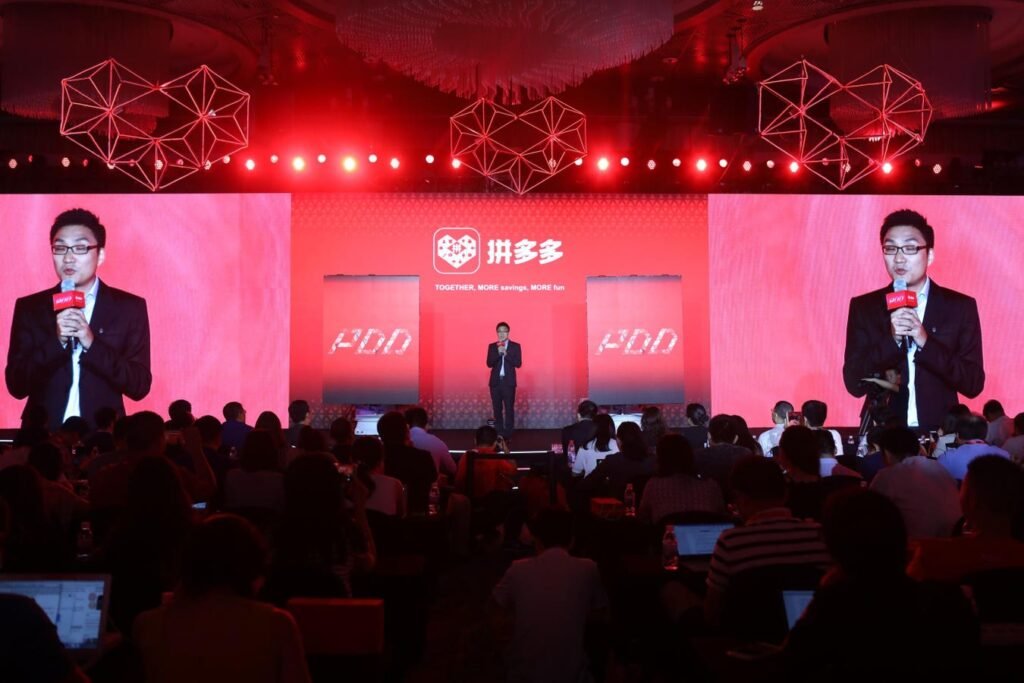Colin Huang, founder of Pinduoduo, the predecessor of PDD Holdings, speaks at the company’s listing ceremony in Shanghai on July 26, 2018.
Visual China Group via Getty Images
Colin Huang, founder of e-commerce giant PDD Holdings, briefly became China’s richest person, replacing Zhong Shanshan, founder of beverage giant Nongfu Spring.
Huang, 44, was crowned for a few hours on Thursday with a fortune of $46.9 billion, according to Forbes estimates. The tycoon stepped down as chairman of PDD Holdings in 2021 but continues to derive his net worth from a large stake in the company.
But Nongfu Spring’s Hong Kong-listed shares rose in afternoon trading, raising Chung’s fortune to $47 billion from $46.5 billion in the morning.The change in leadership comes as Nongfu Spring faces fierce price competition in its main bottled-water business, and analysts say it could hurt its profitability and share price in the long term.The company’s shares are still down more than 10 percent since it announced a HK$2 billion ($256 million) share buyback plan a month ago.
Huang, meanwhile, is boosting his wealth thanks to the success of Nasdaq-listed PDD Holdings Ltd. The reclusive tycoon, who began his career as an engineer at Google in the United States in 2004, founded PDD Holdings, formerly known as Pinduoduo, in 2015, nearly two decades after rivals such as Alibaba and JD.com.
Despite being a late entrant, the company has grown into a $185 billion e-commerce giant thanks to a successful discount strategy that translates into ultra-low prices that are appealing at a time when China’s economy faces slowing growth. Shoppers can join buying groups on the platform to buy everything from clothes and electronics to food in bulk. A T-shirt can be purchased for just 17.7 yuan ($2.50), for example, or a box of 80 biscuits for 9.8 yuan.
“In addition to its low prices, the company has a pretty strong market share in mid-tier cities and the mid-market,” said Kenny Ng, a Hong Kong-based securities strategist at Everbright Securities International Inc. “The market will remain competitive, but I think PDD Holdings has a big advantage.”
The company recently faced vendor protests on its overseas Temu platform but managed to stave off the crisis without any serious repercussions, according to Robert Mackay, a Shenzhen-based senior researcher at research firm Blue Lotus Capital Advisors. Mackay noted that the company’s shares have risen 8.1% in the past week, nearly erasing previous losses from the protests.
Ng says PDD Holdings’ stock has room to grow. He thinks the company is relatively cheaply valued: It’s currently trading at 17.5 times earnings, on par with Alibaba’s 17.8 times in New York.
PDD Holdings announced that its first-quarter sales rose 131% year-on-year to 86.8 billion yuan, and its net profit more than tripled to 28 billion yuan. Alibaba, meanwhile, saw its sales increase 7% to 222 billion yuan in the same period, while its net profit fell 96% to 919 million yuan due to losses from investments in listed companies.
Analysts say investors aren’t pricing PDD Holdings higher because they’re pricing in geopolitical risks. They worry that Tem’s platform, now central to the company’s rapid growth and known for flashy marketing, including a Super Bowl commercial the past two years, could come under increased government scrutiny as tensions between the U.S. and China rise. Investors also worry that regulators around the world are looking to impose higher taxes on Tem to protect local companies from an influx of low-cost goods.
Ke Yang, head of research at Singapore-based DZT Research, said Temu’s regulatory risks are easier to manage than TikTok. The popular short-video app, developed by China’s ByteDance, faces a ban or divestment order in the United States. U.S. lawmakers have argued that it poses national security risks because the Chinese government could access user data or gain greater influence in the U.S. through content on the platform. ByteDance has repeatedly denied the charges and is challenging the orders in court. Temu, on the other hand, is not content-centric, making it unlikely the e-commerce platform could be used to build political influence, Ke said.




